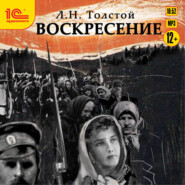По всем вопросам обращайтесь на: info@litportal.ru
(©) 2003-2024.
✖
Katia
Настройки чтения
Размер шрифта
Высота строк
Поля
I felt my tears getting the mastery of me, and my irritation against him increasing. I was afraid of this irritation, and I went to find him. He was sitting in his study, writing. Hearing my steps, he turned for an instant, looked at me with a calm and indifferent air, and continued writing; this look did not please me, and instead of going up to him, I stopped near the table where he was writing and, opening a book, began to run my eyes over the page. He turned then, a second time, and looked at me again:
“Katia, you are not as bright as usual!”
I only responded by a cold glance, meant to convey: “And why? And why so much amiability?” He shook his head at me, and smiled timidly and tenderly; but, for the first time, my smile would not answer his.
“What was the matter with you this morning?” I asked, “why would you tell me nothing?”
“It was a trifle! a slight worry,” he replied. “I can tell you all about it, now. Two peasants had been summoned to the city…”
But I would not let him finish.
“Why did you not tell me when I asked you?”
“I might have said something foolish, I was angry then.”
“That was just the time to tell me.”
“And why so?”
“What you think, then, is that I never can help you in anything?”
“What I think?” said he, throwing down his pen. “I think that without you I could not live. In all things, in all, not only are you a help to me, but it is by you that everything is done. You are literally to me ‘well-fallen,’” he went on smiling. “It is in you alone that I live; it seems to me nothing is good but because you are there, because you must…”
“Yes, I know it, I am a nice little child who has to be petted and kept quiet,” said I, in such a tone that he looked at me in amazement. “But I do not want this quieting; I have had enough of it!”
“Come, let me tell you about this morning’s trouble,” he said hastily, as if he was afraid to give me time to say more: “let us see what you think of it!”
“I do not wish to hear it now,” I replied.
I really did want to hear it, but it was more agreeable to me, at this moment, to disturb his tranquillity.
“I do not wish to play with the things of life; I wish to live,” I added; “like you.”
His face, which always so clearly and so readily reflected every impression, wore a look of suffering and intense attention.
“I wish to live with you in perfect equality…”
But I could not finish, such profound pain was on his face. He was silent an instant.
“And in what do you not live with me on a footing of equality?” he said: “it is I, not you, that is concerned in this affair of the ispravnik and some drunken peasants.”
“Yes, but it is not only this case,” said I.
“For the love of God, do understand me, my darling,” he continued; “I know how painful a thing care is for us all; I have lived, and I know it. I love you, therefore I would spare you every care. My life is centred in my love for you; so do not prevent my living!”
“You are always right,” said I, without looking at him.
I could not bear to see him once more serene and tranquil, while I was so full of anger and a feeling somewhat resembling repentance.
“Katia! What is the matter with you?” said he. “The question is not in the least which of us two is in the right, what we were talking about is something entirely different! What have you against me? Do not tell me at once; reflect, and then tell me all that is in your thoughts. You are displeased with me, you have, no doubt, a reason, but explain to me in what I am to blame.”
But how could I tell him all that I had in the bottom of my heart? The thought that he had seen through me at once, that again I found myself as a child before him, that I could do nothing that he did not comprehend and foresee, excited me more than ever.
“I have nothing against you,” said I, “but I am tired, and I do not like ennui. You say that this must be so, and, of course, once more you are right!”
As I spoke, I looked in his face. My object was attained; his serenity had disappeared; alarm and pain were stamped upon his face.
“Katia!” he began, in a low, agitated voice, “this is no jesting we are engaged in, at this moment. Our fate is being decided. I ask you to say nothing, only to hear me. Why are you torturing me thus?”
But I broke in.
“Say no more, you are right,” said I, coldly, as if it were not I, but some evil spirit speaking with my lips.
“If you knew what you are doing!” he exclaimed in a trembling voice.
I began to cry, and I felt my heart somewhat relieved. He was sitting near me, silent. I was sorry for him, ashamed of myself, troubled by what I had done. I did not look at him. I felt sure that he was looking at me, and that his eyes were perplexed or severe. I turned; his eyes were indeed fixed upon me, but they were kind and gentle and seemed entreating forgiveness. I took his hand, and said:
“Pardon me! I do not know, myself, what I said.”
“Yes, but I know what you said, and I know that you spoke the truth.”
“What truth?” I asked.
“That we must go to St. Petersburg. This is no longer the place for us.”
“As you wish.”
He took me in his arms and kissed me.
“You forgive me?” he said, “I have been to blame concerning you…”
In the evening I was at the piano a long time playing for him, while he walked up and down the room, repeating something in a low tone to himself. This was a habit with him, and I often asked him what he was murmuring thus, and he, still thoughtful, would repeat it again to me; generally it was poetry, sometimes some really absurd thing, but even the very absurdity would show me what frame of mind he was in.
“What are you murmuring there, now?” I asked after a time.
He stood still, thought a little, then, smiling, repeated the two lines from Lermontoff:
“And he, the madman, invoked the tempest,
As if, in the tempest, peace might reign!”
“Yes, he is more than a man; he sees everything!” thought I; “how can I help loving him!”
I left the piano, took hold of his hand, and began to walk up and down with him, measuring my steps by his.
“Well!” he said, looking down at me with a smile.
“Well!” I echoed; and our two hearts seemed to spring to each other once more.

















